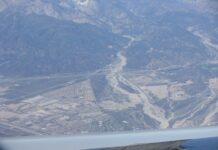Photo credit: DiasporaEngager (www.DiasporaEngager.com).
New York, March 6, 2024—Mozambique governor of Cabo Delgado Valige Tauabo must withdraw statements accusing journalists of colluding with terrorists and ensure that members of the press covering the restive region, in the country’s northernmost province, can work without state intimidation, said the Committee to Protect Journalists on Wednesday.
In a public address on February 17 in the provincial capital of Pemba, Tauabo accused journalists of striking “deals” with terrorists and being “in sync with terrorists,” according to media reports. Tauabo also alleged that journalists’ views had been influenced and “formatted by terrorists,” and he claimed that this undue influence had led to coverage of the region with an “imprint of evil,” according to those same reports. Tauabo, who warned the media “not to create a situation” with their reports, did not name any specific journalist or media outlet.
Since 2017, Cabo Delgado has been the at the center of an insurgency in which thousands have been killed and at least a million people displaced, amid fighting between militants affiliated with the Islamic State and state forces backed by troops from other countries in the region. After three months of calm, a new wave of attacks between late December 2023 and February 2024 forced over 70,000 people to flee their homes in Cabo Delgado, according to reports by United Nations agencies, the media and Human Rights Watch.
“It is alarming that officials in Cabo Delgado are issuing threats against the media and making inflammatory comments about journalists who already face high levels of risk covering the insurgency in Cabo Delgado,” said CPJ Africa Program Coordinator Muthoki Mumo from Nairobi. “Officials in Cabo Delgado should withdraw recent comments accusing journalists of colluding with terrorists and desist from intimidating the media. Mozambican authorities should instead support the timely and independent journalism that the public needs to make crucial decisions amid a new wave of attacks.”
A journalist based in Cabo Delgado, who spoke to CPJ on condition of anonymity out of fear of reprisal, said authorities rarely provide timely information or respond to journalistic queries about the conflict, creating a “vacuum of official information that feeds disinformation about the security situation in the region.”
Another journalist, who also asked not to be named for safety concerns, told CPJ that “the narrative of blaming journalists for the difficulty in combating insurgency is the same that led to arrests and the disappearance of a journalist in Cabo Delgado.”
Since 2019, CPJ has documented the arrest of at least two journalists in Cabo Delgado on terrorism allegations. In 2020, radio journalist Ibraimo Mbaruco disappeared in Cabo Delgado, after texting a colleague that he was “surrounded by soldiers.” Authorities have yet to provide a credible account of his whereabouts.
CPJ’s repeated calls to Tauabo went unanswered. An email sent to the governor returned an error message. When CPJ contacted José via messaging app, he declined to comment, saying “only the defense institutions could speak about the delicate situation in the region.”
Source of original article: Africa Archives – Committee to Protect Journalists (cpj.org).
The content of this article does not necessarily reflect the views or opinion of Global Diaspora News (www.GlobalDiasporaNews.com).
To submit your press release: (https://www.GlobalDiasporaNews.com/pr).
To advertise on Global Diaspora News: (www.GlobalDiasporaNews.com/ads).
Sign up to Global Diaspora News newsletter (https://www.GlobalDiasporaNews.com/newsletter/) to start receiving updates and opportunities directly in your email inbox for free.






























